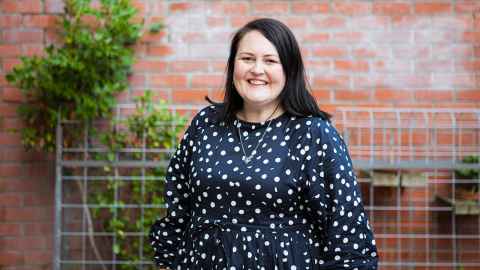Michal Garvey
Michal Garvey is the founder and director of Foodprint, an app helping keep edible food out of landfills.

“If the passion is not there then you’re not in the right place,” says Michal Garvey, founder of the award-winning Foodprint app, which redirects surplus food from eateries to customers to help prevent waste.
Michal has a BA in Māori Studies and Political Science and says learning te ao Māori principles such as kaitiakitanga, juxtaposed with the impacts of colonisation in Aotearoa, helped shape her values and world view.
“My degree helped me find my place in the world and uncover the impact I want to have.”
But it was after a "life-changing" year in Sweden in 2017, soaking up a country where sustainable living is part of the culture, that set Michal on a particular course.
Within a year of returning to Aotearoa, Michal had set up Foodprint, first in Auckland then Wellington, with the support of the Creative HQ Climate Response Accelerator. Foodprint was one of eight successful teams to get into the programme from more than 70 applications.
The app won a Gold Pin and a silver accolade at the 2020 Designers Institute Best Design Awards, and was a finalist in the NZ Sustainable Business Awards.
Foodprint works by linking food outlets with thousands of customers. Customers check the app to see which eateries have surplus food going for a discount, such as a bakery or supermarket near you. You purchase the food in the app and collect it using the app’s map feature.
“Globally one-third of all food produced for human consumption is wasted,” says Michal. “Food that ends up in landfills decomposes and emits methane, contributing to the climate crisis. New Zealand cafes, restaurants and supermarkets produce 50,000 tonnes of food waste each year. More than 60 percent of this is completely avoidable.”
Michal says Foodprint and the conversations it creates around food waste can play a role in Aotearoa meeting the United Nations Sustainable Development Goals target to halve food waste by 2030.
“We’re working with over 400 eateries and have saved more than 50,000kg of carbon dioxide equivalent emissions through food rescue,” she says. “I’m looking forward to the day when that’s 50,000 tonnes of CO2 equivalent emissions.”